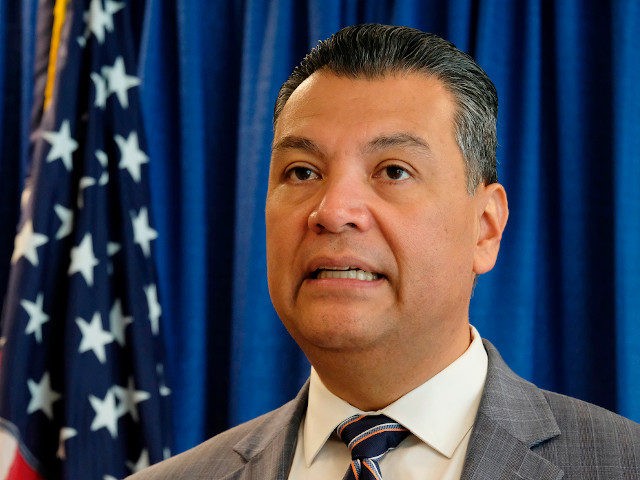Democrat Sen. Alex Padilla (D-CA) raised additional concerns about the Journalism Competition and Preservation Act (JCPA) at a Thursday hearing following Sen Ted Cruz (R-TX) caving to the left’s legislation, which would allow media organizations to form cartels to negotiate with Big Tech companies.
Padilla, during Thursday’s Senate Judiciary Committee hearing, told members that he supports the “stated objective” of the bill but still has concerns. While he said he believes there needs to be “stronger language to ensure that the revenue from this bill goes to the workers that make journalism possible, and is invested in the highly quality local journalism,” he disagreed with the statements made by his colleagues, who suggested that the bill is “not about content moderation.”
“I don’t find myself saying this very often. But Senator Cruz was right to be concerned about this bill’s impact on how information is both shared and consumed online,” the Democrat confessed.
“But we depart significantly on how the problems from this bill manifest. And while it’s great that this committee spent the last two weeks ensuring that Senator Cruz is comfortable with the bill, my strong concerns remain unaddressed,” Padilla said, essentially complaining that the measure does not go far enough in allowing what he described as “bad faith actors” to continue, asserting that the provisions “force platforms to amplify the spread of hate speech and disinformation online.”
And indeed, as Breitbart News reported, the bill exacerbates the problem of censorship. While these newly formed media cartels will not be able to exclude media companies based on “views expressed by its content,” they will still be able to exclude them based on the arbitrary factors commonly used by the radical left and Big Tech, already, to censor conservatives, subjectively deeming their posts as “misinformation” or “extremism” or “hate speech” if they disagree with the narrative.
But Padilla clearly thinks the bill does not allow enough censorship. “These provisions also work in concert to allow bad faith actors to force platforms to amplify the spread of hate speech and disinformation online,” Padilla stated, also expressing concern over “the bill’s impact on the open internet and the public’s ability to access and share information.”
“The bill is plagued by vague terms,” he continued, explaining that it “defines access of content as quote ‘acquiring, crawling and indexing content,’ but it does not define those key terms. Does ‘acquire’ referred to an intentional action taken by a platform or would it include every instance of a video or a piece of content that is uploaded by a user onto a platform?” he asked, expressing concern that the bill would benefit organizations such as Project Veritas and InfoWars.
“In other words, is a platform like YouTube, for example, acquiring content when a user uploads a video to its service? If the answer is yes, then this bill creates an opportunity for outlets like Project Veritas or InfoWars to simply upload their videos to YouTube, and then compel payment from the company from the platform,” he said.
“Confusion over the interpretation of these highly technical terms can be extremely consequential,” Padilla added, concluding that the measure “still needs a lot of work.”
As currently drafted, Padilla said he could not support the bill on the floor. However, the committee adopted the Cruz amendment and moved the measure.

COMMENTS
Please let us know if you're having issues with commenting.